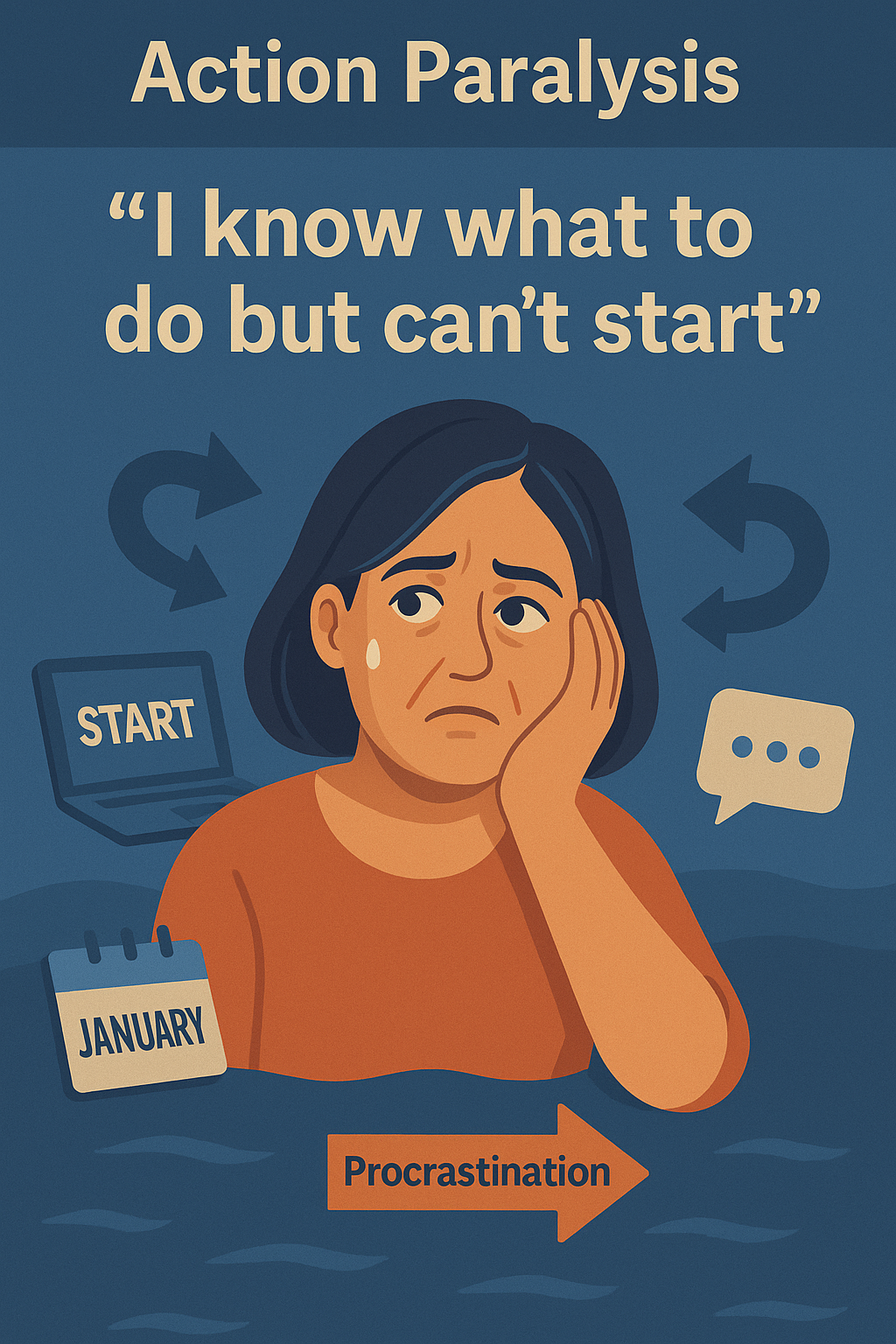Procrastination

Breaking Free from Procrastination: How a Single-Session Intervention Can Spark Real Change
Procrastination isn't just about being lazy or disorganized. It's a complex emotional response that affects nearly everyone—from students facing deadlines to professionals managing projects, from parents juggling responsibilities to creatives pursuing their passions.
The Hidden Cost of Waiting
When we procrastinate, we're not simply delaying tasks. We're caught in a cycle that feeds on itself:
🔹 The anxiety builds as deadlines approach
🔹 Self-criticism intensifies ("Why can't I just start?")
🔹 Shame accumulates with each postponement
🔹 Confidence erodes as we doubt our abilities
Recent research shows that 83% of people report procrastination significantly impacts their mental health, contributing to increased stress, anxiety, and even depression. Yet most of us try to power through alone, believing we should somehow "just do better."
Why Traditional Approaches Often Fall Short
Many of us have tried the usual fixes: elaborate planning systems, productivity apps, accountability partners. While these tools have their place, they often miss the emotional core of procrastination. They treat the symptom, not the cause.
What's missing? A fundamental shift in how we understand and relate to our procrastination patterns.
The Power of a Single Focused Session
Here's where Single-Session Interventions offer something different. Instead of months of exploration or complex systems, a single-session therapy approach provides:
✅ Immediate insight into your specific procrastination triggers
✅ One concrete strategy you can implement today
✅ A shift in perspective that changes how you see yourself
Think of it as a focused conversation with yourself, guided by evidence-based techniques. In just 10-15 minutes, you can:
1️⃣ Identify your procrastination style (perfectionist? overwhelmed? rebellious?)
2️⃣ Uncover the emotion driving your avoidance
3️⃣ Build a personalized "if-then" plan for your next challenge
4️⃣ Practice self-compassion instead of self-judgment
The Growth Mindset Shift
One of the most powerful elements of single-session interventions for procrastination is the growth mindset approach. Instead of seeing yourself as "a procrastinator" (fixed identity), you begin to see procrastination as a behavior you can change (growth opportunity).
This isn't about positive thinking—it's about recognizing that your brain can form new patterns, even after years of delay habits.
Small Friction, Big Results
Here's a counterintuitive truth: making things slightly harder can actually help. We call this the "convenience paradox." When everything is too easy, we don't build the resilience muscles we need.
For procrastination, this might mean:
🔹 Starting with just 2 minutes of focused work (yes, that's friction—it requires stopping what you're doing)
🔹 Writing one sentence of that report you've been avoiding
🔹 Making one phone call you've been putting off
These tiny actions create what researchers call "behavioral momentum"—once you start, continuing becomes easier.
You're Not Alone in This
If you're reading this and thinking, "This sounds like me," know that you're in excellent company. Studies show that up to 95% of college students and 20% of adults identify as chronic procrastinators. This isn't a character flaw—it's a human experience.
Your Next Step
The beauty of a single-session therapy approach is that you don't need to wait. You don't need the perfect time, the right mood, or ideal circumstances. You just need 10-15 minutes and a willingness to try something different.
What would change if you approached your procrastination with curiosity instead of criticism?
Ready to explore a new way forward? A single-session intervention might be all you need to break the cycle and rediscover your capability to take action—one small, meaningful step at a time.
Remember: You're not broken. You're not lazy. You're a human being navigating complex emotions and competing demands. And with the right approach, you can transform procrastination from an enemy into a teacher, showing you what matters most and how to move toward it with confidence.
🔸 The journey from stuck to unstuck begins with a single session. Why not today?
